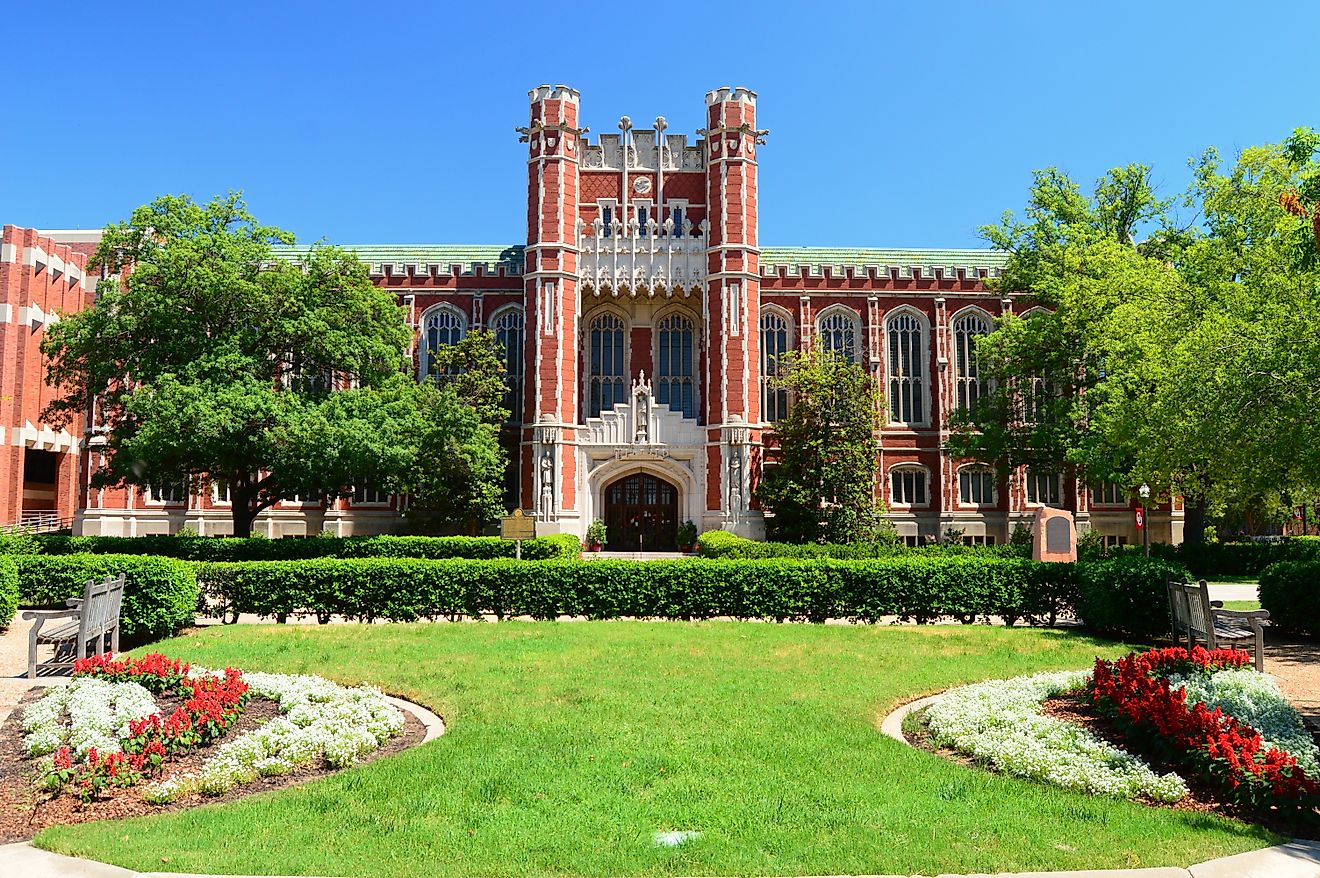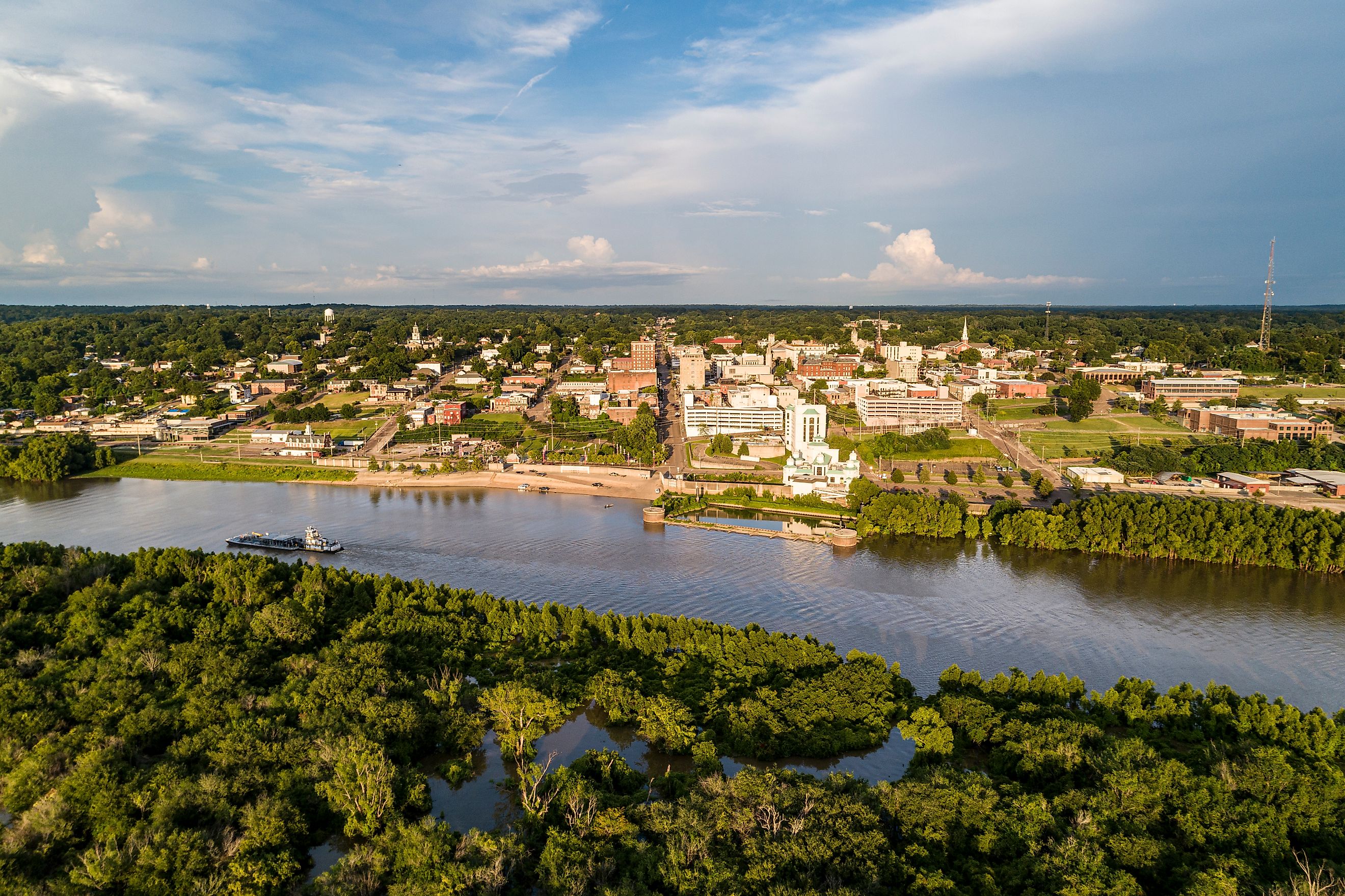
The Most Charming River Towns In Mississippi
While one of 15 states named after major waterways, Mississippi ranks at the top when it comes to the country’s most interesting river towns. In addition to the Mississippi River, rightly named Misi-ziibi or “Great River” by the Ojibwe, several major rivers flow through the Magnolia State, including the Pascagoula, Pearl, and Tombigbee, all of which eventually wind up flowing into the Gulf.
All told, Mississippi has some 81,316 miles of river, providing ample opportunities first for Native Americans, then European settlers, to set up home along waterways that not only provided sustenance but also transportation. Fast forward to today and the best of these charming river towns in Mississippi offer plenty of excuses to stop and explore.
Natchez
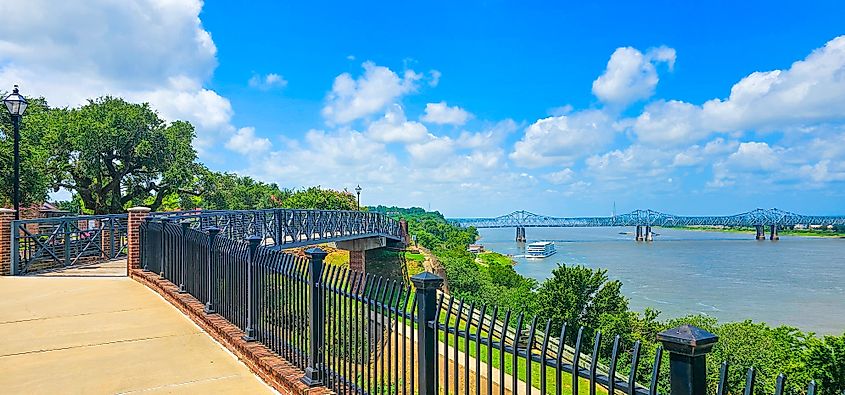
Few places along the mighty Mississippi can quite match Natchez in terms of its deep connection to America’s second-longest river. The waterway’s oldest European settlement, Natchez, was founded by the French in 1716 for its commanding views over the Lower Mississippi and became a crucial port for the cotton trade. The wealth that followed led to the construction of more than 1,000 antebellum structures, the largest collection of its kind.
The best of these are located in Natchez National Historical Park, including the spectacular Melrose estate with its Greek Revival architecture (guided tours are available). Another must-visit is Fort Rosalie. Dating from 1716 and the original French fortification, the William Johnson House features interpretive exhibits about colonial conflicts and Native American displacement. William Johnson House is also of interest and provides a rare insight into the life of a freed slave before the Civil War.
Natchez Under the Hill is a must-wander, too. The town’s historic riverfront district is where you’ll find several 19th-century buildings where riverboat crews once caroused. These now house restaurants like The Camp Restaurant, set in a restored 1940s general store and featuring wholesome American dishes. Afterwards, retire to your room at the charming Monmouth Historic Inn with its lovely gardens overlooking the Mississippi River.
Columbus
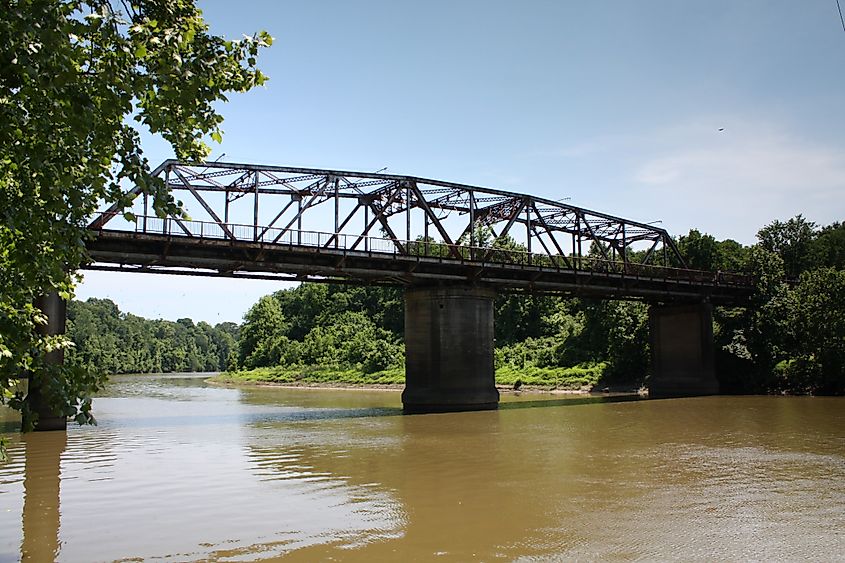
Columbus spans the Tombigbee River near Mississippi's eastern border with Alabama and, like Natchez, boasts an impressive (though smaller) collection of intact antebellum homes dating from before 1865. Its commercial importance as an inland port was cemented by the 1985 construction of the Tennessee-Tombigbee Waterway (aka the “Tenn Tom”), a 234-mile shipping channel connecting the Tennessee River to the Gulf of Mexico (Gulf of America).
You can get a feel for the town’s riverside heritage with a stroll along the Columbus Riverwalk. This scenic 4.4-mile walking and biking trail along the Tombigbee River starts in the downtown core and winds through hardwood forests with seating and picnic areas along the way. The impressive Tennessee-Tombigbee Waterway Stennis Lock and Dam, located just north of Columbus, is an opportunity to watch massive barges navigate the 341-foot elevation change, one of the highest in the eastern United States.
Vicksburg
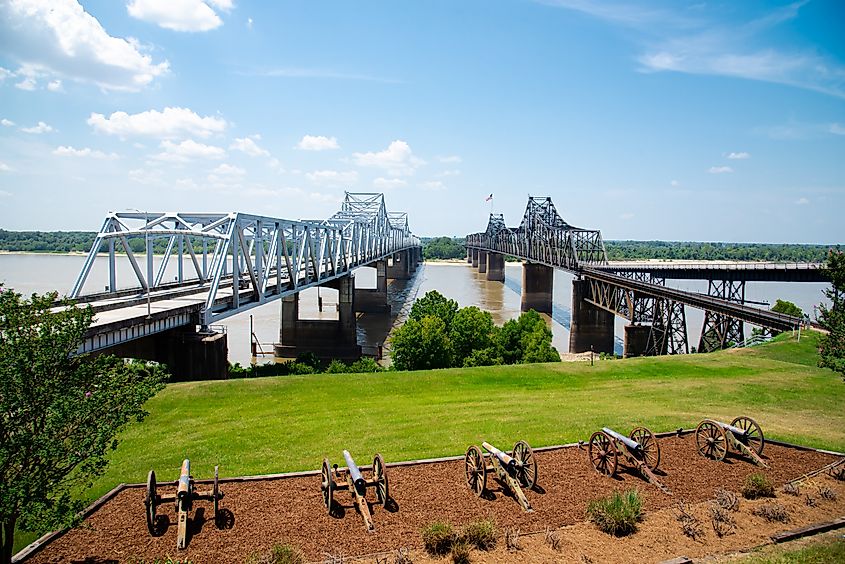
Its strategic position on high bluffs overlooking a horseshoe bend in the Mississippi River made Vicksburg a crucial holdout during the Civil War. Dubbed the “Gibraltar of the Confederacy,” a 47-day siege in 1863 led to the city's surrender and gave the Union control of the river, effectively splitting the Confederacy. Today, a visit to the vast Vicksburg National Military Park is a must-do for its historic monuments, trenches, and cannon emplacements, most of which can be viewed by following a dedicated 16-mile road tour.
The town’s Civil War history can also be experienced at the USS Cairo Gunboat Museum. The highlight here is the recovered Union ironclad gunboat, USS Cairo, which sank in the Yazoo River in 1862. You can climb inside this painstakingly reconstructed vessel as well as view the more than 1,000 artifacts recovered with it, including sailors' personal effects, weapons, and even the ship's engines.
The Jesse Bent Lower Mississippi River Museum also features displays about the town’s deep connections to the river and is home to the Mississippi IV, a retired Army Corps of Engineers inspection vessel.
Clarksdale
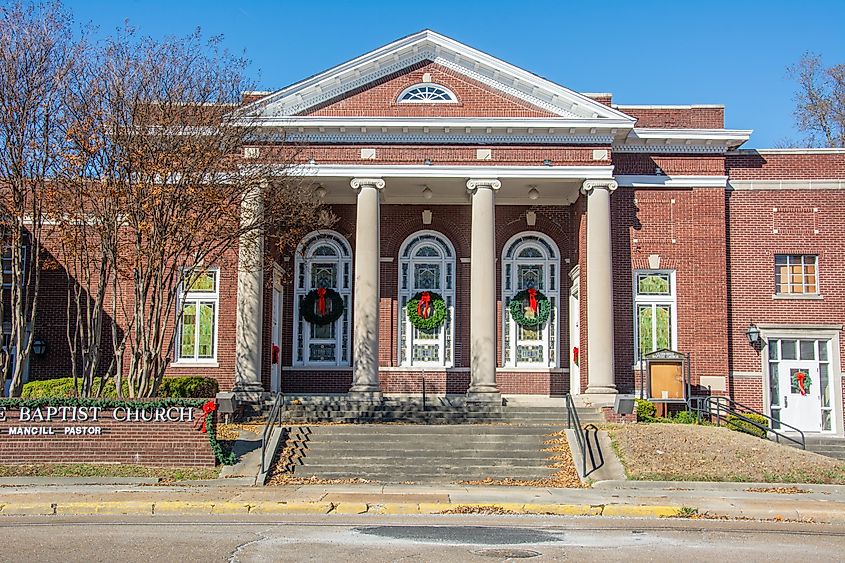
Clarksdale sits along the Sunflower River in Mississippi's Delta region, just 10 miles east of the Mississippi River. Known as the birthplace of the blues and home to legendary musicians like Muddy Waters, John Lee Hooker, and Sam Cooke, this dynamic small town has transformed its musical heritage into a tourism draw with the Delta Blues Museum, the world's first museum devoted to the blues, at its center. You can also get a taste of this rich connection at the Sunflower River Blues and Gospel Festival held each August with free performances in downtown Clarksdale.
Historic sites like the Riverside Hotel are also worth checking out. It was here that the legendary Bessie Smith passed away and where many blues musicians stayed during the segregation era. Book a stay at the Delta Cotton Company Apartments above the famous Ground Zero Blues Club, or a riverfront stay at the charming Honey Hill Bed and Breakfast overlooking the Sunflower River.
Greenville
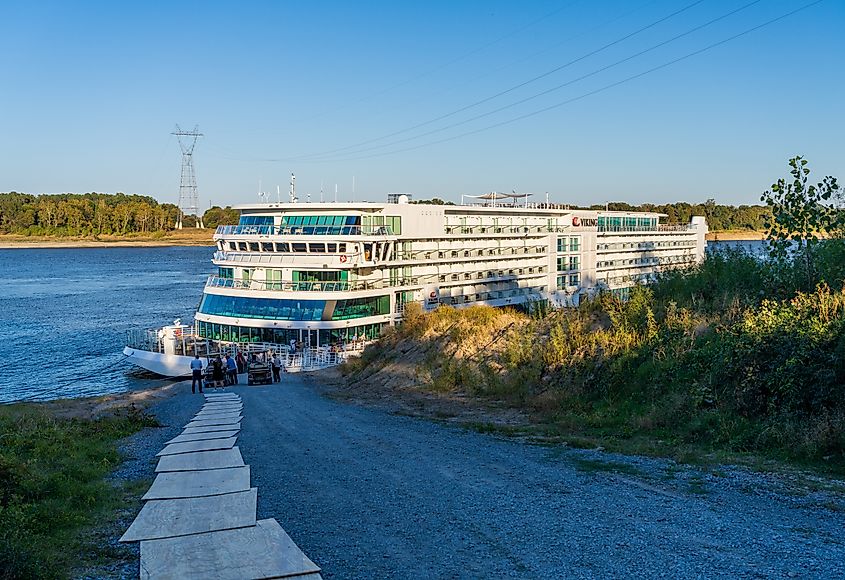
The town of Greenville has the unique distinction of actually sitting on not one, but two sections of the Mississippi River. Well, sort of. Look at a map and you’ll see the southwestern part of town touches the Mississippi at Warfield Point Park while the majority of the town rests on the shore of Lake Ferguson. This slender, curving lake was once a part of the Mississippi and was created when engineers straightened an S-shaped curve in the river in the 1930s that ultimately helped Greenville retain its river port status.
Downtown Greenville's riverfront is certainly fun to explore and now plays a major role in the Mississippi Delta’s cultural scene. Blues music is especially important here, with the legendary B.B. King born and raised in the area. The blues icon’s music, along with that of other local heroes, is celebrated at the Mississippi Delta Blues and Heritage Festival each September. The South’s oldest blues festival is held at the Washington County Convention Center.
For a dose of the quirky, the Delta Hot Tamale Festival sees downtown Greenville transformed into a foodie paradise. Held each October, this three-day event attracts hot tamale vendors from across America to celebrate a tradition dating back to Mexican migrants who came to town for work in the early 1900s.
Port Gibson
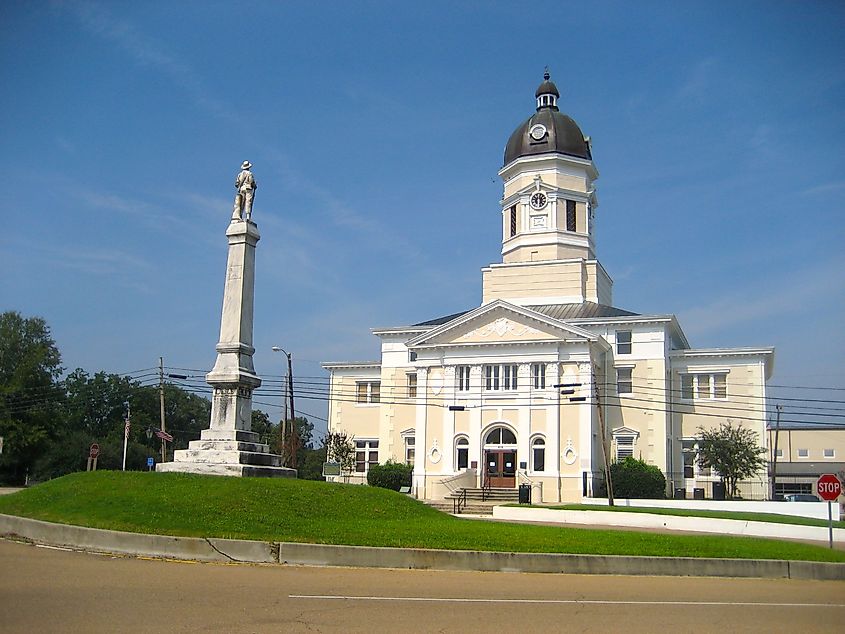
Port Gibson overlooks the Mississippi River and was, according to General Ulysses S. Grant, "too beautiful to burn" for its collection of elegant antebellum homes and churches. The town's strategic location near the river led to it being contested during the Battle of Port Gibson in 1863, the first inland battle of Grant's Vicksburg Campaign.
Many of these spared buildings can be seen in Port Gibson’s historic downtown area along charming Church Street. Take a stroll and you’ll pass antebellum homes and churches including the First Presbyterian Church with its famous gold hand pointing heavenward atop the steeple; and the Claiborne County Courthouse from 1845. You’ll also want to check out the famous Windsor Ruins 10 miles southwest of town. This amazing site is notable for its 23 standing Corinthian columns, remnants of what was once the largest antebellum Greek Revival mansion in the state.
Rosedale
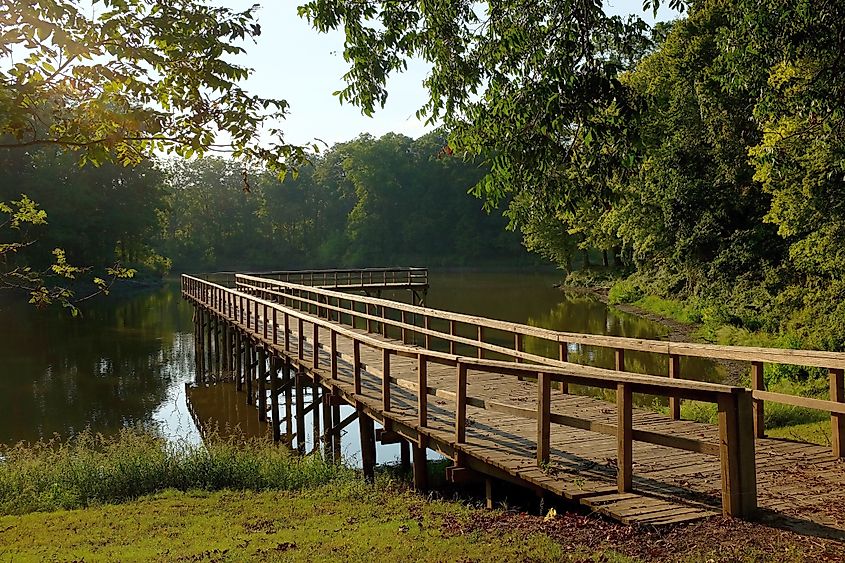
Rosedale sits on a Mississippi River levee where the Great River Road offers spectacular views of America's mightiest waterway. This tiny Delta town gained blues fame for being home to the crossroads of Highways 1 and 8, where Robert Johnson sold his soul to the Devil. You can learn more about Johnson's pact with the Devil and the story of Travelling Riverside Blues, which references Rosedale, at the old Yazoo and Mississippi Valley Railroad depot.
Perry Martin Lake, a 25-acre oxbow of the Mississippi River within Great River Road State Park, provides plenty of bass, white perch, and catfish if fishing’s your thing. In addition to its direct river access, the park is a good base for exploring this section of the Mississippi and its many blues heritage sites.
The Final Word
There’s no doubt that Mississippi's charming river towns provide an authentic journey through the South. From Natchez's antebellum elegance to Clarksdale's Delta Blues connections, and many equally fun stops along the way, these must-visit communities are well-worth getting to know. Shaped by the mighty Mississippi River and its tributaries, they’re each ready to share compelling stories unique to the Magnolia State.
